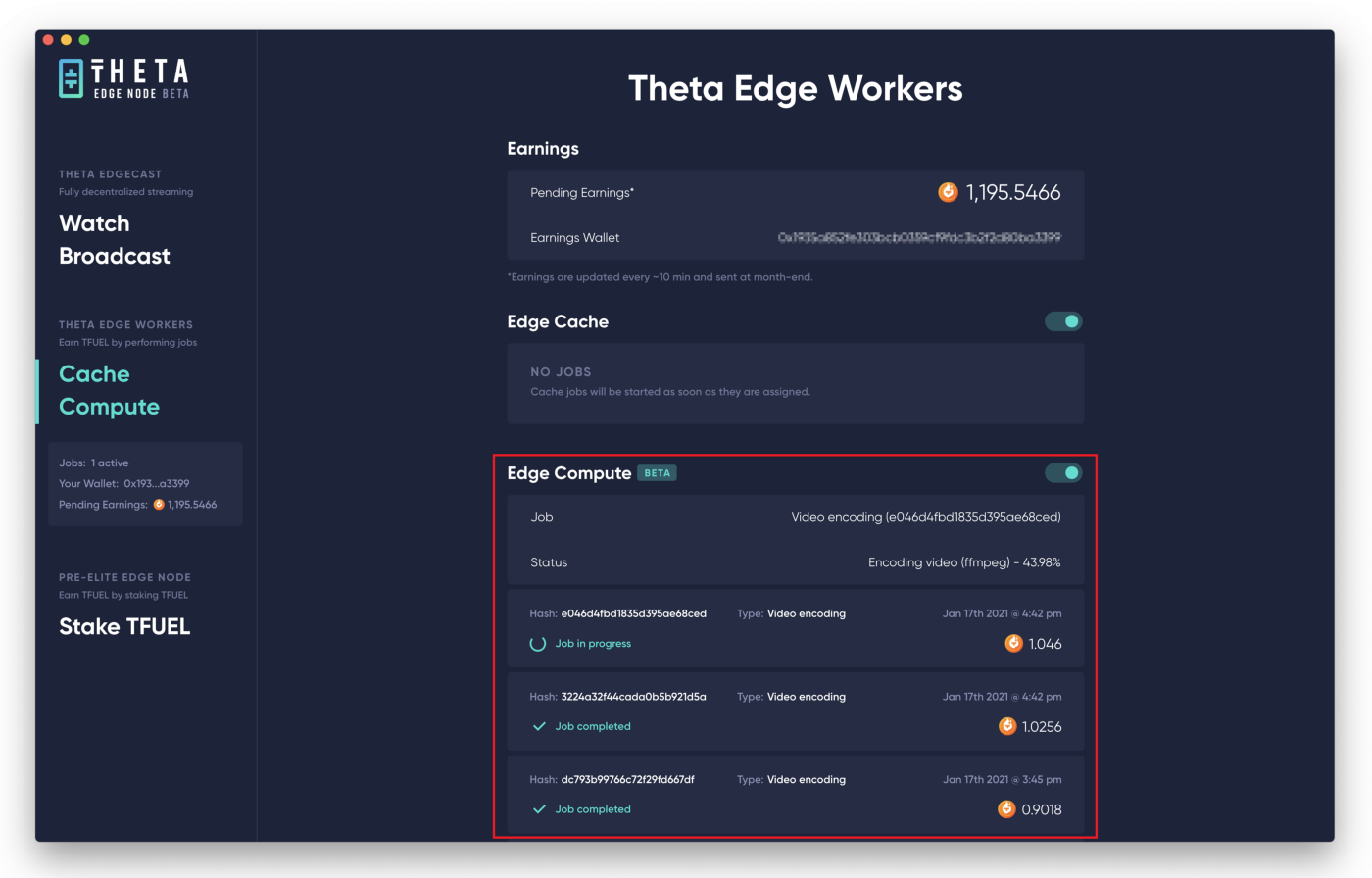Video Transcoding
Recently, edge nodes also added the capability for users to contribute their excess CPU/GPU computing power to process jobs for Folding@Home, the world’s first distributed supercomputer dedicated to medical efforts such as protein folding for vaccine research. Now, Edge Compute is launching a new type of job for video transcoding.
Video transcoding is the process of converting video files from one encoding format to another, to change file formats or to a different bitrate for example. This is a critical function utilized by all video platforms including Netflix, Amazon Prime, Disney+ and others to ensure video can reach the greatest number of users with different video players, internet speeds, latency, and other factors that call for different video formats. According to the global consulting firm MarketsandMarkets, today’s centralized video transcoding industry generates $1.1B in annual revenue, and is expected to grow by 15% per year into 2022 and beyond. It’s a massive market and only growing bigger with more media and entertainment content moving to video.
As more video-on-demand, live streamed, online video shopping, social user-generated videos are generated, they must be transcoded to make it readily consumable by viewers around the world. This work can now be seamlessly done through Theta’s distributed Edge Network, with users earning TFUEL in exchange for completing these compute-intensive jobs. To begin with, we will be testing with sample videos to track reliability, speed and efficiency, and then moving to actual uploaded videos from Theta.tv and over time expanding to external customers. This is an in-demand workflow, a turnkey solution that will be attractive to all video platforms to use, and adding to the available jobs for edge nodes to complete.

Updated 3 months ago